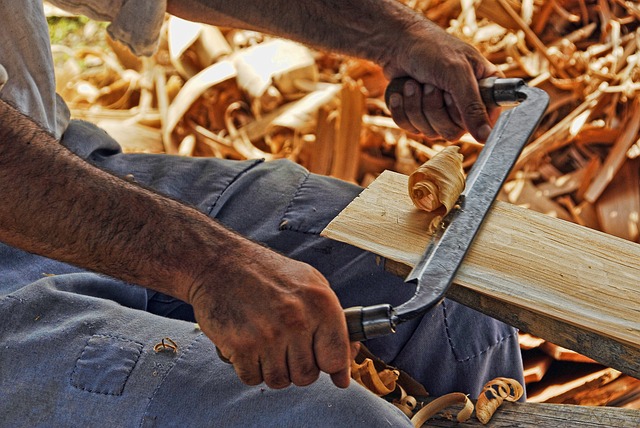Carpenters build doors, kitchen cabinets, furniture and more. They are a hugely popular career choice, with many people wanting to get into carpentry because they love working with wood.
Some vocational-technical schools and community colleges offer associate degree programs that prepare students for a career as a carpenter. These programs often include a carpentry apprenticeship.
What 3 careers are similar to a carpenter?
A career as a carpenter can be highly rewarding and interesting. However, it also comes with its share of challenges and can be physically taxing. If you’re considering a career change or want to find something that pays more than carpentry, there are a number of alternative careers you can explore.
The first is as a site supervisor, which would require you to manage building projects and oversee construction workers. You’d do things like coordinate the work of different trades, check their work and organize materials. You may choose to become a carpentry supervisor or general construction supervisor, and you can advance to higher-level positions with experience and education.
Another career is a facilities manager, who takes care of the maintenance on a commercial property. They’ll inspect equipment and ensure it complies with all health and safety regulations. They’ll also contract third-party contractors for maintenance and keep records of those contractors’ work.
Alternatively, you can become a brick mason, who builds buildings with bricks instead of wood. This is a less demanding career than carpentry, but it still requires strong physical strength and endurance, as you’ll be required to tear down and dismantle old buildings in order to make way for new ones.
You can also become an insulator, who covers household structures and equipment with insulation to prevent heat or cold transfer. They often inspect a building for hazards, replace old insulation, and dispose of used insulation material.
The third career is as a logistics manager, which involves heavy lifting and climbing. You’ll need to be able to handle the physical demands of working in such an environment, but it can pay well, and you’ll likely have the skills that you developed as a carpenter, so it shouldn’t be too difficult for you to do.
If you’re looking for a more flexible career that isn’t physically demanding, you can also consider becoming an electrician.
This is a profession that can be quite lucrative, and you’ll need to have some training to get started but you should be able to excel with the skills you already have as a carpenter, such as cutting, shaping and gluing.
Can you make a living off of being a carpenter?
If you love working with your hands and like to help people, carpentry may be the career for you. It can be a rewarding job with good pay and excellent job prospects. However, it can also be a challenging one that requires a lot of patience and perseverance.
Carpenters construct and repair buildings and structures such as stairs, windows, doors, and cabinets. They also use hand and power tools to cut, shape, and assemble materials. Typically, they need math skills to calculate the size of the pieces they need to cut and measure.
They need to be physically fit and capable of lifting, bending, carrying, climbing, and working on projects that require prolonged periods of standing or stooping. They also need to have the ability to read and interpret blueprints.
In some cases, carpenters can boost their income by working overtime. This can result in a significant increase in their annual earnings. Even a few extra hours a week can add thousands to their bottom line.
Another great thing about being a carpenter is that you can have a pretty good work-life balance. Most carpenters only work Monday to Friday, so they get plenty of time off to spend with their families. They are also able to enjoy many weekend trips and have a great time with their friends.
The downside of being a carpenter is that it can be a rather lonely career.
Since you usually have to finish one project at a time, there will not be much contact with your colleagues.
You should also be aware that there will be a lot of people who just want to complain about you or your work. Hence, you should make sure that you are very friendly and that you try to find solutions to the issues they raise.
It is important to be aware that this job can be quite stressful if you have a lot of clients. If you are not patient enough, you can end up getting very frustrated and unhappy.
In addition, if you do not have the technical skills to be a carpenter, it is best to avoid this profession. This can be a serious problem in the long run.
How much does a self-employed carpenter make a yea
Carpenters are builders who use wood to make structures, including furniture, artwork, and foundations. They also do work that includes repairing and installing flooring, drywall, and fixtures.
Carpenters can work for construction companies or independently. If you’re a self-employed carpenter, your earnings depend on the type of work you perform and how much experience you have. Typical carpentry wages range from $36,000 to $68,000 per year, depending on your location and experience.
As a self-employed carpenter, you can find jobs through word of mouth and advertising. It’s important to network and build relationships with clients, as they may be willing to refer your services to other people.
When marketing your business, you can target customers who have similar needs to yours and offer competitive rates. This strategy can lead to more revenue, as you can increase your profit margins.
You can also choose to specialize in a particular area of carpentry and work on projects that pay well, such as framing or installing premium luxury decks. This can allow you to obtain more work and set your own hourly rate.
It’s also important to know the cost of materials and labor, which can vary greatly from one job to another. The best way to estimate your costs is to research what other carpenters in your area charge for the same types of projects you’re considering pursuing.
Finally, you’ll need to have the proper tools and business insurance. This will protect you against unforeseen costs, such as injuries, damage to property, or lawsuits.
While carpentry is a good career choice for many people, it’s also an expensive one. The cost of equipment and insurance can add up quickly, so it’s important to budget carefully.
You’ll also need to register as a self-employed carpenter with the government and file taxes. This is a legal requirement, but it’s also an opportunity to build your credibility and reputation.
If you’re self-employed, you should also consider business insurance and invoicing software to help you manage your finances. This will save you time and money, enabling you to better focus on building your business.
What are the 4 skills for beginning carpenters?
If you’re considering a career as a carpenter, it’s essential to know the skills necessary for success. The right knowledge will help you find a job that you enjoy and make you a valuable employee.
Among the many skills that you need for this career are math and mechanical skills, manual dexterity, good problem-solving skills, and stamina. In addition, you’ll need strong communication skills so that you can work effectively with clients and explain technical issues in terms they can understand.
To begin building your knowledge of carpentry, take a shop class in high school. This will teach you how to read building plans and measure wood safely. You’ll also learn how to use basic hand and power tools, and you might even get the opportunity to practice on real projects!
Another important skill that you should develop is the ability to read a tape measure. This is because you’ll need to be able to take accurate measurements so that you can cut the right size wood pieces. If you’re not familiar with how to read a tape measure, there are a lot of great online tutorials that can teach you all the basics.
Physical fitness is also a crucial part of being a carpenter. This will help you keep up with your workload and prevent injuries while on the job. It also helps you stay hydrated, so it’s worth spending some time on your health and fitness to ensure you have the right energy for your job.
Having a high level of manual dexterity will allow you to handle your tools with ease and precision. This is particularly useful when working with complicated materials and joints, such as timber and metal.
You’ll need to be able to use tools like a hammer, drill, nail gun, and wood plane, as well as chisels. You should also practice using different types of saws, such as a table saw and a circular saws so that you can be sure to have the correct tool for every job.
The right knowledge can save you time and money, so it’s important to learn everything you can about the tools you need for carpentry. Taking a class at your local community college, or enrolling in a hands-on apprenticeship program, is a good way to gain these skills. You can also brush up on your knowledge by reading construction books, magazines, and websites.







